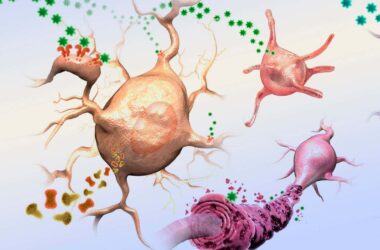Intermittent fasting has gained popularity in recent years as a method for weight loss. It involves depriving the body of glucose, which forces it to break down fat to produce an alternative fuel source called ketones. However, besides promoting weight loss, intermittent fasting may also have immune-boosting effects and help combat diseases.
In a study conducted on mice, researchers found that immune cells become more effective in fighting infections and cancer when they use ketones as an energy source. It was previously believed that cells primarily use glucose for energy, but it was discovered that certain immune cells called T cells do not produce much energy from glucose.
The research team analyzed genetic data from three studies that focused on T cells responding to infections and tumors. They found that effective T cells had increased activity in genes involved in breaking down ketones, indicating that they derived energy from ketones when fighting disease.
To further investigate, three groups of mice were genetically engineered: one group could break down ketones, one group couldn’t, and a control group. The researchers then compared their response to an infection. The results showed that the mice that could break down ketones had more T cells producing cytokines, substances that kill off pathogens, compared to the group that couldn’t break down ketones. Additionally, the ketone-utilizing mice could produce more cytokines per T cell. The researchers also injected cancer cells into the mice and found that the tumors grew larger in the group that couldn’t break down ketones.
These findings suggest that immune cells are more effective at fighting diseases when they use ketones rather than glucose for fuel. They also help explain why previous research has shown that fasting for 12 or more hours daily improves immune function in mice.
This study may also provide insights into how dietary interventions that increase ketone production, such as intermittent fasting, could affect our ability to fight off infections and cancer. However, the researchers caution that not all ketone-producing diets have the same effects. For example, the low-carbohydrate ketogenic diet, which is high in fat, can suppress immune cells and impair immunity.
“The ability to break down ketones made T cells more effective at fighting off infections in mice. Or, as Jones says, it increased the number of soldiers and ammunition on the front line.”
Overall, the study suggests that intermittent fasting and other dietary interventions that boost ketone production may have both weight loss and immune-boosting benefits. However, it’s important to consider the specific type of diet and its potential effects on immunity.








